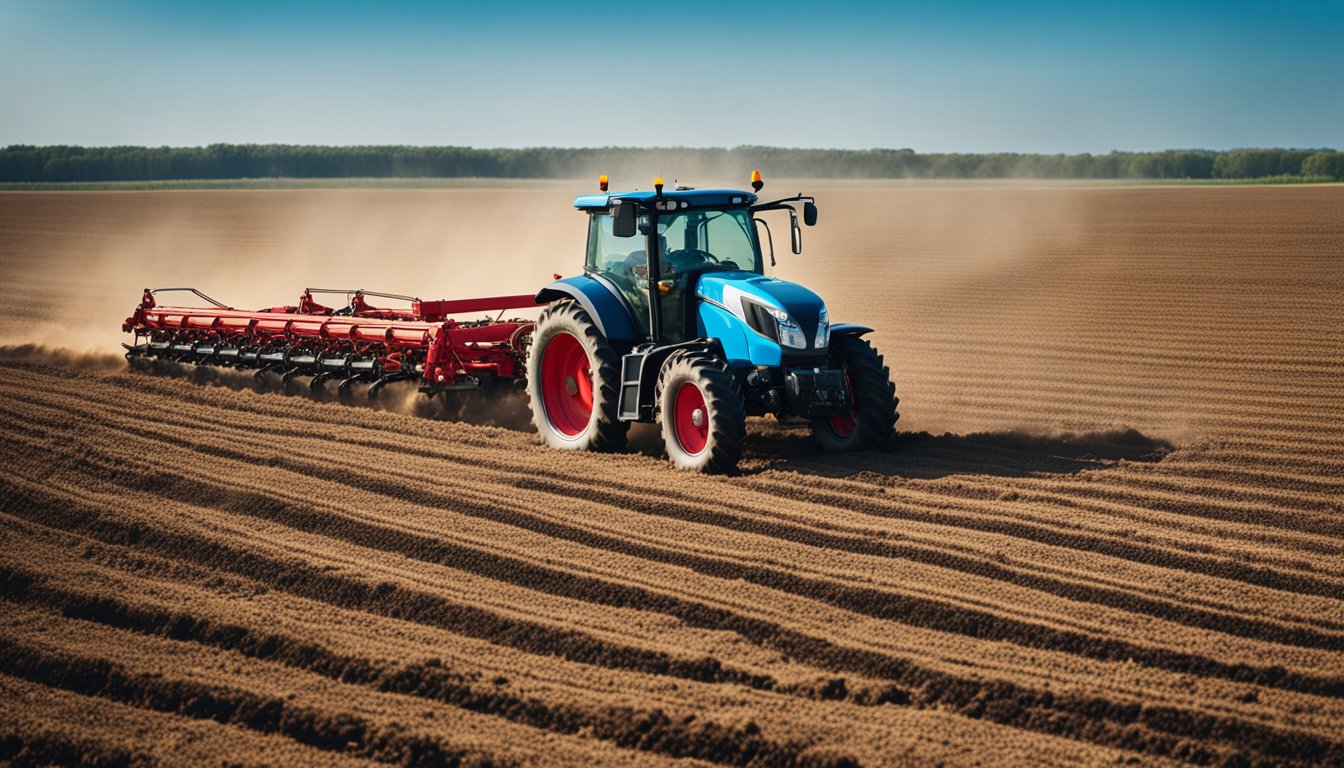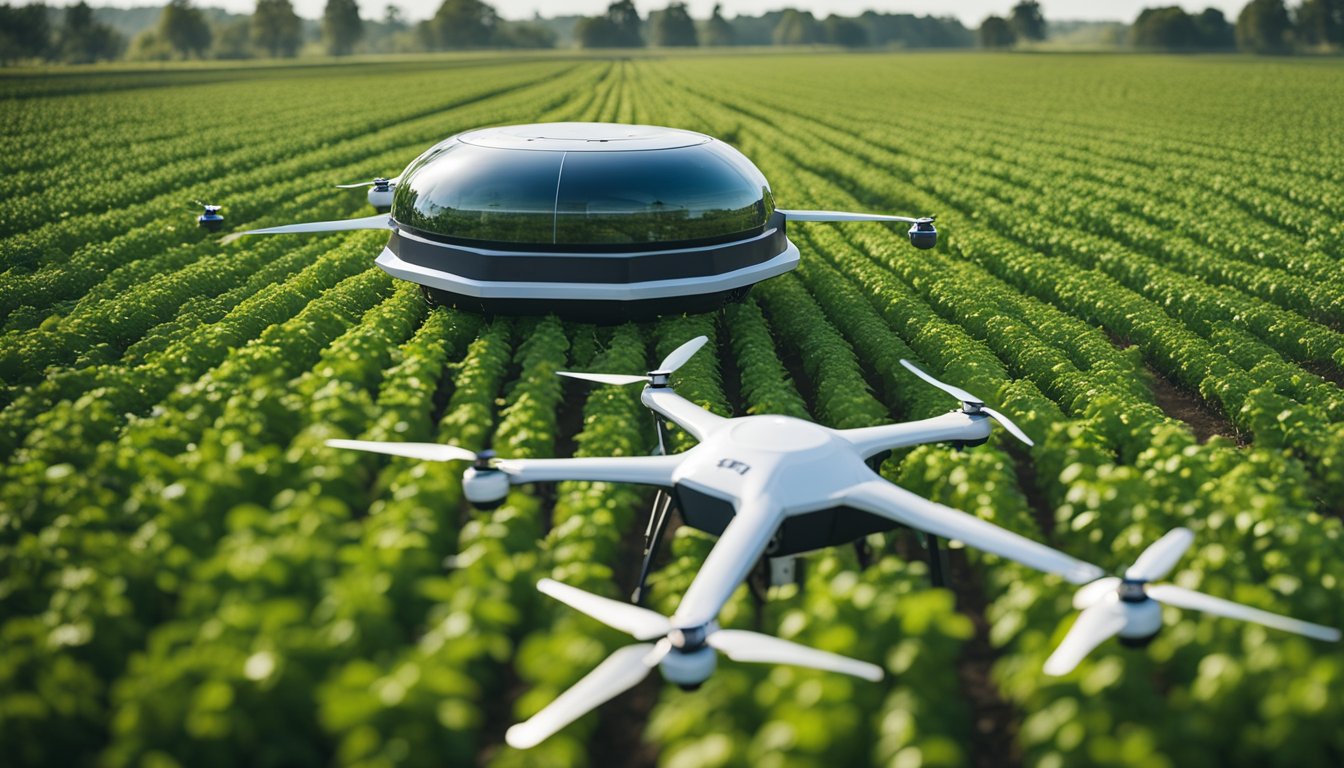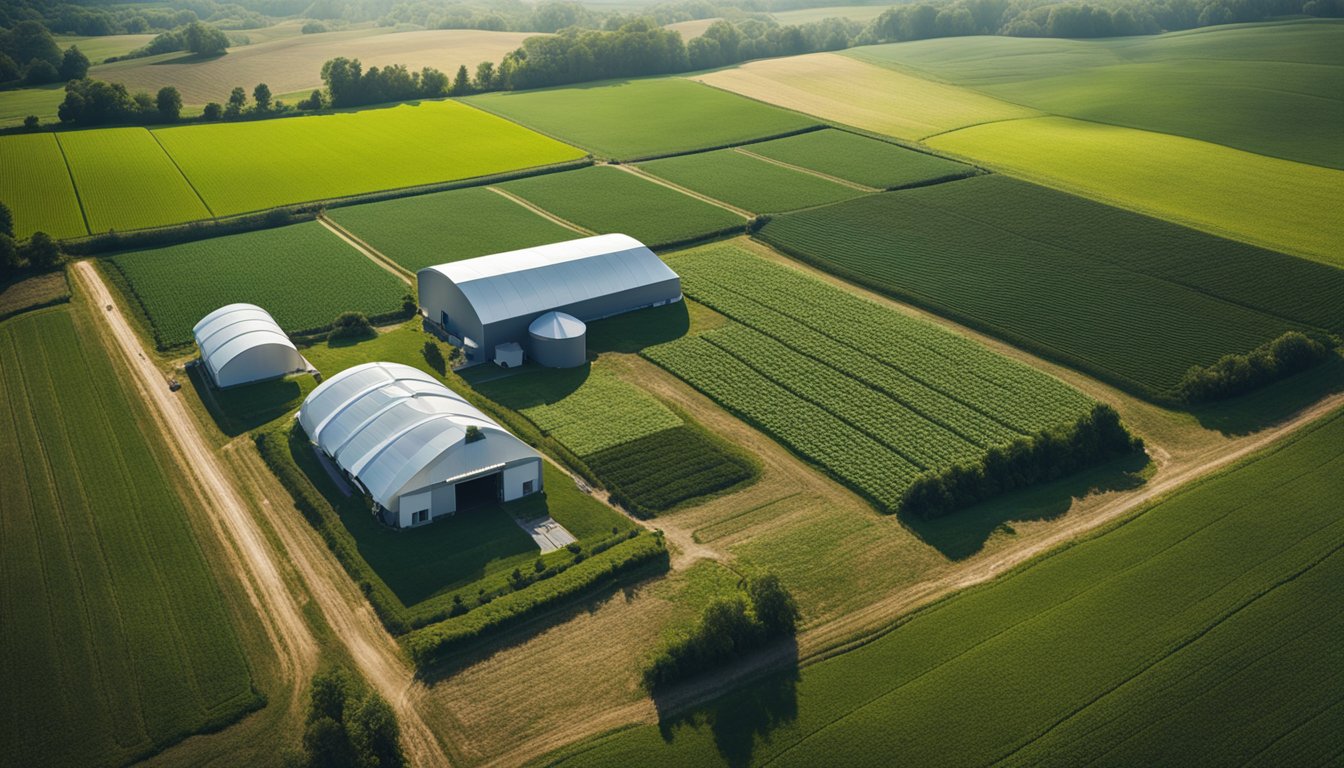Late updated: 04 Nov 2024 14:11
Written by: Oliver Bennett
Smart Farming Tools Revolutionising UK Agriculture: Enhancing Efficiency and Sustainability
Smart farming tools are rapidly transforming the landscape of UK agriculture, infusing it with cutting-edge technology to enhance both productivity and sustainability. By integrating artificial intelligence and digital twins, we're seeing a shift towards more precise farming practices that not only improve yields but also bolster resilience amidst climate change challenges. This new wave of technology provides farmers with innovative tools to efficiently manage resources, increase crop yields, and lower environmental impact.

In an era where climate change poses significant threats to food security, these advanced tools are more critical than ever. The implementation of AI-driven systems enables farmers to predict weather patterns, optimise water usage, and monitor soil health with unprecedented accuracy. These innovations are not just changing how we farm; they're ensuring that our agricultural practices remain viable for generations to come.
As we embrace these technological advancements, it's essential to understand how they are reshaping the UK's agriculture framework. The focus on smart farming tools underscores the movement towards a high-tech agricultural industry that prioritises both efficiency and sustainability.
Key Takeaways
- AI and digital technology enhance UK farming productivity and resilience.
- Smart tools optimise resource management and environmental impact.
- New developments are vital for adapting to climate change impacts.
The Role of AI and Technology in Enhancing UK Agricultural Productivity

Emerging technologies, particularly AI, are transforming the landscape of UK agriculture, enabling greater efficiency and productivity. By leveraging AI, drones, robotics, and advanced data analytics, we are making farming smarter, more precise, and environmentally sustainable. These innovations provide farmers with actionable insights to manage resources efficiently, improve crop yield, and ensure food security.
Artificial Intelligence: Driving Precision Farming
Artificial intelligence is at the forefront of precision agriculture in the UK. By integrating AI with machine learning, we can analyse vast amounts of data, offering insights into crop health, soil conditions, and weather patterns.
AI technologies, such as predictive analytics and digital twins, allow us to simulate different growth scenarios, enabling informed decisions that optimise resource use and reduce waste. This helps increase productivity and efficiency, leading to enhanced food security. AI-powered advisory systems further assist in farm management, recommending the best practices to boost yields and maintain sustainability.
Smart Farming Tools: Drones, Robotics, and IoT
Smart farming tools, including drones, robotics, and IoT devices, are revolutionising agricultural processes. Drones provide aerial imagery and data capturing, essential for detailed field analysis. This helps us monitor crop health and detect pest infestations early, reducing loss.
Robotics, such as those developed by firms like the Small Robot Company, automate tasks like weeding, enhancing productivity by reducing labour needs. The Internet of Things (IoT) connects various devices, creating a network of real-time data exchange, improving management and operational efficiency. Together, these tools enable precise application of inputs like water and fertilisers, conserving resources while increasing output.
Data Analytics and Real-Time Monitoring
Data analytics plays a critical role in transforming raw data into practical insights. By using real-time monitoring systems, we can track conditions such as soil moisture, nutrient levels, and climate, in real time. This allows for rapid response to changing conditions, minimising risks and optimising resource allocation.
Farm management software integrates these analytics for data-driven decisions, improving overall efficiency. Through systems like farm dashboards, farmers can visualise and track farm activities, thus enhancing productivity and sustainability. Predictive models can also forecast potential issues, ensuring proactive measures are taken to safeguard crops and maintain steady production.
Sustainability and Environmental Impact in UK Agriculture
Addressing sustainability within UK agriculture involves adopting practices that enhance environmental stewardship and resource management. As we delve into soil health, resilience, and technological advancements, it's clear that these components are transforming British agriculture to ensure a more sustainable and environmentally friendly future.
Promoting Sustainable Practices and Soil Health
Effective sustainable agriculture relies heavily on practices that maintain and improve soil health. Crop rotation and precision irrigation are central to this strategy, reducing the need for chemical inputs while preserving nutrient-rich soil. By maintaining diverse crop cycles, farmers can naturally thwart pests and diseases. It's essential for maintaining long-term soil fertility.
Utilising precision farming technologies, we monitor soil conditions closely, optimising water and fertiliser use. This not only enhances yields but also significantly reduces environmental impact. Such technologies enable precise resource allocation, conserving invaluable resources and ensuring sustainability.
Climate Change, Resilience, and Food Production
Climate change challenges the resilience of UK agriculture. Unpredictable weather patterns and extreme events threaten traditional farming cycles, necessitating adaptable strategies. Resilient farming practices, informed by data and innovative technology, support consistent food production despite environmental unpredictability.
Carbon footprint reduction is a core aim, with initiatives targeting sustainable energy use and reduced emissions. Adaptable crop varieties and smart weather forecasting strengthen our resilience against climate variances, enabling farmers to anticipate and mitigate climatic impacts effectively.
Enhancing Resource Management Through Cutting-Edge Technologies
Cutting-edge technologies play a pivotal role in optimising resource management. Smart farming tools like IoT sensors and data analytics systems provide real-time insights into water usage and crop health. This facilitates precision agriculture practices, enhancing resource optimisation and minimising waste.
Industry 4.0 technologies integrate seamlessly into farming operations, boosting efficiency while reducing environmental strain. By leveraging these innovations, the agricultural industry can achieve higher productivity levels without compromising environmental sustainability. Our strategic approach ensures a positive trajectory for British agriculture, balancing profitability with ecological responsibility.
Frequently Asked Questions

As smart farming tools continue to advance, the UK agricultural sector is seeing dramatic shifts in farming practices and efficiency. These technological developments are reshaping productivity, sustainability, and the way farmers operate.
What advancements in technology have significantly transformed agricultural practices in the UK?
Recent years have introduced numerous innovations in the farming sector. Technologies such as AI, satellite imaging, and blockchain are key components. These advancements enhance precision and efficiency, enabling farmers to optimise the cultivation processes.
In what ways have smart farming techniques influenced crop productivity and sustainability?
Smart farming techniques, including precision agriculture and smart irrigation systems, have made a notable impact on crop yield. These innovations allow us to utilise resources efficiently, ensuring better crop health and reduced waste, ultimately promoting sustainability.
How has the introduction of automation and data analytics shaped the landscape of UK farming?
Automation and data analytics have redefined how farming tasks are managed. By automating repetitive tasks and analysing large sets of data, farmers can make informed decisions. This results in increased productivity and streamlined operations across various agricultural activities.
What role do Internet of Things (IoT) devices play in the development of modern UK agriculture?
IoT devices connect various farming components, ranging from sensors to machinery. They collect real-time data on soil conditions, weather patterns, and crop health. This connectivity aids in precise monitoring and timely interventions, bolstering efficient farm management.
How are UK farmers adapting to the innovations in agricultural equipment and software?
UK farmers are embracing these innovations by integrating new equipment and software into their operations. Training and education programs are helping them acquire necessary skills. This transition supports improved farm productivity and adaptability to modern challenges.
What impact does precision agriculture have on the environmental footprint of UK farming?
Precision agriculture aims to minimise the environmental impact by reducing resource wastage and promoting efficient land use. By applying inputs like water and fertilisers more precisely, we can lessen adverse environmental effects while boosting sustainable practices in agriculture.
